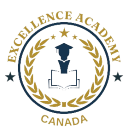16 others bought this course in the last 24 hours!
Medical Emergency: Assessing and Treating Injuries course teaches you everything on the topic thoroughly from scratch so you can achieve a professional certificate for free to showcase your achievement in professional life. This Medical Emergency: Assessing and Treating Injuries course is a comprehensive, instructor-guided course, designed to provide a detailed understanding of the nature of the related sector and your key roles within it.
To become successful in your profession, you must have a specific set of skills to succeed in today’s competitive world. In this in-depth training course, you will develop the most in-demand skills to kickstart your career, as well as upgrade your existing knowledge & skills.
The training materials of this course are available online for you to learn at your own pace and fast-track your career with ease.
- Accredited by CPD
- Instant e-certificate and hard copy dispatch by next working day
- Fully online, interactive course with audio voiceover
- Developed by qualified professionals in the field
- Self-paced learning and laptop, tablet, smartphone-friendly
- 24/7 Learning Assistance
- Discounts on bulk purchases
Who should take the course
Anyone with a knack for learning new skills can take this Medical Emergency: Assessing and Treating Injuries course. While this comprehensive training is popular for preparing people for job opportunities in the relevant fields, it also helps to advance your career for promotions.
Certification
Once you’ve successfully completed your course, you will immediately be sent a digital certificate. Also, you can have your printed certificate delivered by post (shipping cost £3.99). All of our courses are fully accredited, providing you with up-to-date skills and knowledge and helping you to become more competent and effective in your chosen field. Our certifications have no expiry dates, although we do recommend that you renew them every 12 months.
Assessment
At the end of the course, there will be an online assessment, which you will need to pass to complete the course. Answers are marked instantly and automatically, allowing you to know straight away whether you have passed. If you haven’t, there’s no limit on the number of times you can take the final exam. All this is included in the one-time fee you paid for the course itself.
Course Curriculum
Module 1: Working in Different Healthcare Settings
- Working in different types of healthcare settings
- Working in acute care settings (hospitals)
- Working in sub-acute care settings
- Working in-home care and long-term care
- Summary
Module 2: Legal, Standards and Professional Aspects of Ethical Practice: Part - 1
- Doctor-Patient Confidentiality or Implementation of P.L.R.C
- Access to the Patient Records Legislations
- Adult safeguarding and support Legislations
- Abortion Legislations
Module 3: Legal, Standards and Professional Aspects of Ethical Practice: Part - 2
- Mental Capacity & Mental Health Legislations
- Drugs Control, Supervision, Management & Health Protection Legislations
- The Code: Professional standards of practice and behaviour
Module 4: Initial Assessment
Module 5: Life-Saving Priorities
Module 6: Common Injuries
Module 7: Major Injuries
- Head injuries or Concussions
Module 8: Environmental Injuries
- Cold Injuries
- Heat Injuries
Module 9: Medical Emergency
- Diabetic Hyperglycemia & Hypoglycemia
Module 10: Things to Keep in Mind
Module 11: Infection Control
- What is Infection?
- The chain of Infection
- Decontamination of non-invasive shared equipment
- Standard Precautions
- Guidelines for Standard Precautions
- Infection Prevention and Control Policies
- Prevention of Infection in Healthcare Settings
- Universal Precautions
- Infection Control in Special Circumstances
Module 12: Fluid and Electrolyte Balance
- Body Fluids
- Fluid and Electrolyte Transport
- Fluid and Electrolyte Balance
- 10 Fluid and Electrolyte Imbalances
- Nursing Management for fluid and electrolyte imbalances
